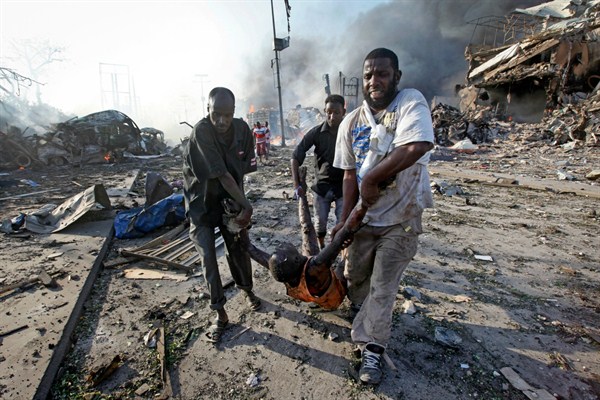On Oct. 14, a huge truck bombing in Somalia’s capital, Mogadishu, killed at least 350 people, the deadliest act of terrorism in the country’s history. The manner and scale of the attack reveal much about the security situation in Somalia and the ongoing war against the Islamist militant group al-Shabab. In an email interview, Yasin Ahmed Ismail, who leads GLAFPOL, a research, analysis and consultancy group operating in East Africa and the Horn of Africa, explains the faults in Somalia’s security system, the government’s ongoing campaign against al-Shabab, and how the Trump administration’s intensified engagement in Somalia could change things on the ground.
WPR: What does the recent bombing say about the security situation in Somalia, and what might it obscure?
Yasin Ahmed Ismail: The magnitude and the location of the Mogadishu bombing show the fragility of Somalia’s security. A large truck carrying military and homemade explosives detonated prematurely in the heart of Mogadishu at a bustling intersection 10 minutes from the heavily guarded international airport in Mogadishu. The intended target for the attack is suspected to have either been Somalia’s nearby Foreign Ministry, the new Turkish military base or the airport, which is home to numerous embassies, international organizations and the headquarters of the African Union peacekeeping mission, or AMISOM.

